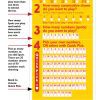Are you ready to learn how to win online poker tournaments? This is your chance to master the game and dominate the virtual poker tables. Whether you’re a beginner or a seasoned player, I’ve got some tips and tricks that will give you an edge in these high-stakes tournaments. So, let’s get started and take your poker skills to the next level!
In this article, we’ll explore strategies and techniques that will help you maximize your chances of success. From understanding the importance of bankroll management to identifying the right moments to make bold moves, we’ll cover it all. Winning a poker tournament is not just about luck; it’s about skill, strategy, and making the right decisions at the right time.
So, grab your virtual chips and get ready to dive into the exciting world of online poker tournaments. With the right mindset and the tools I’m about to share with you, you’ll be well on your way to becoming a formidable poker player. Get ready to outsmart your opponents and stack those chips in your favor. Let’s go, poker champions!
Looking to improve your chances of winning online poker tournaments? Follow these steps for success:
- Study the game and learn the rules
- Develop a solid strategy
- Practice regularly and analyze your gameplay
- Manage your bankroll wisely
- Maintain focus and stay disciplined
This guide will help you enhance your poker skills and increase your chances of coming out on top in online tournaments. Good luck!

How to Win Online Poker Tournaments: Mastering the Game for Success
Welcome to our comprehensive guide on how to win online poker tournaments! Whether you’re a beginner looking to enhance your skills or an experienced player ready to take your game to the next level, we’ve got you covered. In this article, we’ll provide you with valuable strategies, tips, and insights that will help you dominate the virtual poker tables and increase your chances of emerging victorious. Let’s dive in and explore the world of online poker tournaments!
The Importance of Bankroll Management
One of the fundamental aspects of winning online poker tournaments is effective bankroll management. Your bankroll is the amount of money you have set aside exclusively for playing poker. It’s essential to have a dedicated bankroll and establish clear guidelines for its usage.
First and foremost, it’s crucial to only play within your bankroll’s limits. Avoid the temptation to play in tournaments where the buy-ins exceed your bankroll’s capacity. Always prioritize preserving your bankroll over chasing big payouts.
Additionally, utilize proper buy-in strategies that suit your bankroll. Generally, it’s advisable to invest no more than 2-5% of your total bankroll in a single tournament. This approach ensures that you can withstand the inevitable swings of the game and continue playing despite occasional losses.
Mastering Tournament-Specific Strategies
Online poker tournaments have unique dynamics that differentiate them from cash games. To maximize your chances of winning, it’s essential to adapt your strategy accordingly. Let’s explore some tournament-specific strategies that can give you an edge over your opponents.
Firstly, understand the importance of chip accumulation in tournaments. Unlike cash games, where you can simply buy more chips if you run out, in tournaments, once you lose all your chips, you’re eliminated. Therefore, it’s crucial to seize opportunities to accumulate chips whenever possible, especially in the early stages when the blinds are low.
Secondly, employ a mix of tight and aggressive play. Aggression is key to accumulating chips and putting pressure on your opponents. However, avoid unnecessary risks by playing too loose. Instead, selectively choose your spots and capitalize on strategic opportunities.
Mindset and Mental Game
Winning online poker tournaments goes beyond mastering the technical aspects of the game – it also requires a strong mindset and mental fortitude. Maintaining a focused and disciplined approach can greatly enhance your chances of success.
Avoiding tilt is crucial in maintaining a clear mindset. Tilt refers to the state of emotional frustration or anger caused by a bad beat or a series of losses. It can lead to irrational decision-making and costly mistakes. Recognize when you’re tilting and take steps to regain your composure, such as taking a short break or practicing deep breathing exercises.
Furthermore, practicing good self-care is essential for optimal performance. Get enough rest, exercise regularly, and nourish your body with healthy food to ensure your mind is operating at its peak. Additionally, seek ways to continually improve your poker skills through studying the game, reviewing hand histories, and analyzing your play.
Staying Updated with Poker Trends and Strategies
The world of poker is constantly evolving, with new strategies and trends emerging regularly. To stay ahead of the competition and maximize your chances of winning online poker tournaments, it’s crucial to stay informed and adapt your game accordingly.
Follow poker news outlets, read books written by top players, and watch instructional videos to enhance your understanding of the game. Join online poker communities and forums to engage in discussions with fellow players and exchange strategies and insights.
Lastly, don’t be afraid to experiment with different tactics and approaches. The more versatile you are, the better equipped you’ll be to handle different situations and opponents. Embrace the learning process and continuously strive to improve your skills.
Mastering Bluffing Techniques to Outsmart Your Opponents
Bluffing is an essential skill to master in poker, particularly in online tournaments where reading physical tells is not possible. In this section, we’ll explore effective bluffing techniques that can give you a significant advantage over your opponents.
Choosing the Right Moments to Bluff
Bluffing is all about creating the perception that you have a stronger hand than you actually do. However, timing is crucial when it comes to executing successful bluffs. Choosing the right moments to bluff can significantly increase your chances of success.
One key factor to consider is your table image. If you’ve been playing tight and conservatively, your opponents are more likely to believe your bluff since you have established a reputation for having strong hands. Conversely, if you’ve been playing aggressively, bluffing becomes riskier as your opponents may be more inclined to call your bets.
Additionally, observe your opponents’ playing styles and tendencies. If you notice a player who frequently folds to aggressive bets, it may be an opportune moment to bluff them out of a pot.
Reading Your Opponents and Exploiting Weaknesses
Effective bluffing involves accurately reading your opponents’ behaviors and exploiting their weaknesses. Pay close attention to their betting patterns, body language (if playing live), and timing tells.
Look for inconsistencies in their actions. For example, if a normally talkative opponent suddenly becomes quiet, it may indicate that they have a weak hand and are contemplating folding. Exploit these cues to execute well-timed bluffs that force them to fold.
Furthermore, leverage your opponents’ tendencies against them. If you’ve noticed that a player frequently calls bets but rarely raises, bluffing may not be as effective against them. Instead, focus on extracting value from your strong hands when facing such opponents.
Using the Community Cards to Strengthen Your Bluffs
The community cards in poker provide valuable opportunities to strengthen your bluffs. When executing a bluff, consider the texture of the board and how it may support your story. If the community cards are uncoordinated and there are no obvious draws, it becomes easier to convince your opponents that you have a strong hand.
Conversely, be cautious when bluffing on coordinated boards with potential flush or straight draws. These types of boards make it more likely for your opponents to have strong hands, and bluffing becomes riskier.
Additionally, pay attention to how your opponents react to the community cards. If they display signs of weakness or hesitation, it may indicate that your bluff would be successful.
Bankroll Management: Safeguarding Your Poker Funds
Bankroll management is crucial for long-term success in poker. Without proper bankroll management, even the most skilled players can go broke. In this section, we’ll dive into the importance of bankroll management and provide you with strategies to safeguard your poker funds.
Defining Your Bankroll
Your bankroll is the total amount of money you have set aside for playing poker. It’s important to establish a separate bankroll that is separate from your day-to-day expenses, ensuring that you don’t risk your essential funds.
When determining the appropriate size for your bankroll, consider factors such as your skill level, game selection, and risk tolerance. As a general rule of thumb, it’s recommended to have a bankroll that is at least 20 times the maximum buy-in of the games you play. This ensures that you have sufficient funds to withstand inevitable downswings and avoid going broke.
Remember, your bankroll should only be used for poker-related expenses such as buy-ins, tournament fees, and travel expenses for live events.
Playing Within Your Bankroll Limits
One of the most important aspects of proper bankroll management is playing within your bankroll’s limits. It’s crucial to resist the temptation to move up in stakes too quickly or play in games that have buy-ins that exceed your bankroll’s capacity.
By staying within your bankroll limits, you minimize the risk of ruin and allow yourself to weather the natural variance of the game. As a result, you’ll have a more stable and sustainable poker journey.
Always prioritize preserving your bankroll over chasing big payouts. Don’t be enticed by the allure of massive prize pools if it means risking a significant portion of your funds. Instead, focus on making consistent, long-term profits by playing within your means.
Utilizing Proper Buy-in Strategies
Proper buy-in strategies are essential for effective bankroll management. Adjusting your buy-in amount based on your bankroll’s size and the stakes you play can help mitigate risk and ensure long-term stability.
A common recommendation is to invest no more than 2-5% of your total bankroll in a single tournament. This conservative approach protects your bankroll from significant losses and allows you to play in a variety of tournaments without exposing your funds to unnecessary risk.
Remember, variance is an inherent part of poker, and even the best players experience losing streaks. By following proper buy-in strategies, you increase your chances of staying afloat during these tough periods and have opportunities to bounce back to profitability.
Poker Tells: Decoding Your Opponents’ Hands
In the fascinating world of poker, understanding opponents’ tells can be the key to gaining an edge in the game. In this section, we’ll explore the art of reading poker tells and provide you with insights to help you decode your opponents’ hands.
Physical Tells
Physical tells refer to subtle cues and behaviors displayed by your opponents that can provide insights into the strength of their hands. While online poker removes the ability to observe physical tells, understanding them is still beneficial in live games or when transitioning to play in-person.
Common physical tells include trembling hands, consistent eye contact or lack thereof, fidgeting, and fluctuating breathing patterns. For example, a player who suddenly starts breathing heavily may indicate that they are holding a strong hand and are excited about the prospects of a big pot.
To effectively read physical tells, it’s essential to establish a baseline by observing your opponents during non-confrontational moments. Look for consistent behaviors or deviations from their baseline when hands are in progress. Remember, physical tells should be used in conjunction with other factors to make informed decisions.
Betting Patterns
Analyze your opponents’ betting patterns to gain insights into their hand strength. Consistency or deviations in bet sizings, timing, and bet types can reveal important information about the cards they hold.
For example, a player who consistently bets the same amount regardless of hand strength may have a strong made hand or a well-crafted bluffing range. On the other hand, a player who pauses before making a large bet may be trying to appear strong while holding a marginal hand.
Identify patterns in your opponents’ bets and use that information to make more informed decisions. However, be aware that experienced players may intentionally vary their betting patterns to deceive their opponents, so always consider the full context of the hand.
Verbal and Behavioral Tells
Verbal and behavioral tells involve the words, phrases, and actions displayed by your opponents during the game. Although online poker removes the ability to observe these tells, they can still be relevant in live games.
Verbal tells may include statements such as “I can’t believe you folded!”, which can indicate that your opponent had a strong hand that you forced them to fold. Conversely, an opponent saying “I guess I’ll call” may signify a weak hand.
Behavioral tells can also provide valuable information. For example, an opponent who suddenly sits up straight and leans forward may indicate that they have a strong hand and are eager for action.
While verbal and behavioral tells are not foolproof indicators of hand strength, they can be used in conjunction with other factors to gain further insight into your opponents’ cards.
Online Poker vs. Live Poker: A Battle of Formats
The world of poker is home to different formats, each with its own unique dynamics and advantages. In this section, we’ll compare online poker and live poker, exploring the pros and cons of each format.
Convenience and Accessibility
When it comes to convenience and accessibility, online poker takes the lead. Online platforms allow you to play anytime, anywhere, as long as you have an internet connection. You have the freedom to choose from a wide variety of games, formats, and stakes that suit your preferences and schedule.
Live poker, on the other hand, requires physical presence at a casino, poker room, or home game. The availability of live poker games may be limited depending on your location, and you need to adhere to scheduled tournament times or cash game sessions.
Winner: Online Poker
Physical and Social Interaction
In terms of physical and social interaction, live poker offers a unique experience. Sitting at a poker table surrounded by fellow players, engaging in conversations, and observing physical tells can be an exciting and immersive experience.
Online poker lacks the same level of physical interaction, but it compensates with its own form of social engagement. Online platforms usually have chat features that enable players to communicate with each other, even though they may be geographically distant.
Winner: Live Poker (for physical interaction), Online Poker (for social interaction)
Game Speed and Multi-Tabling
Online poker boasts a significantly faster game speed compared to live poker. With a few clicks, you can play multiple tables simultaneously, increasing the number of hands you see per hour and maximizing your potential for profit.
In contrast, live poker games tend to have a slower pace, with fewer hands played per hour. This can be advantageous for players who prefer a more relaxed and thoughtful style of play.
Winner: Online Poker
Playing Environment
When it comes to the playing environment, both formats have their advantages and drawbacks. Online poker allows you to create a comfortable playing setup at home, with all the amenities and conveniences you desire. You have full control of your environment, including noise level, lighting, and seating.
Live poker provides a unique ambiance and the opportunity to experience the atmosphere of a casino or poker room. However, playing live can also introduce distractions and potential discomforts as you navigate through crowded spaces, deal with noise, and adhere to casino rules and regulations.
Winner: Personal Preference
Online Poker Tournament Tips and Tricks
To complement the strategies and techniques we’ve explored so far, here are some additional tips and tricks to help you excel in online poker tournaments.
Study Your Opponents
Take advantage of the ability to take notes on online poker platforms. Keep track of your opponents’ tendencies, playing styles, and any patterns you observe. This valuable information can be used to exploit their weaknesses and make more accurate decisions in future hands.
Utilize Time Bank Wisely
In online poker tournaments, you often have a limited amount of time to make decisions. Utilize your time bank wisely, especially in crucial situations. Take your time to think through your options, analyze the board, and consider the potential hand ranges of your opponents before making your move.
Be Prepared for Variance
Variance is an inherent aspect of poker, both online and live. Accept that there will be ups and downs, regardless of how skilled you are. Don’t let temporary setbacks affect your confidence or decisions. Play consistently and focus on long-term profitability.
Conclusion
Winning online poker tournaments requires a combination of skill, strategy, and mental fortitude. By effectively managing your bankroll, adapting to tournament dynamics, mastering bluffing techniques, and decoding your opponents’ hands, you can significantly increase your chances of success. Stay informed, continually improve your skills, and never stop learning. Now, armed with these insights and strategies, it’s time to hit the virtual felt and dominate the online poker tournament scene. Good luck!
Key Takeaways: How to Win Online Poker Tournaments?
- Develop a solid starting hand strategy to increase your chances of winning.
- Learn to read your opponents and take advantage of their playing styles.
- Manage your bankroll wisely and avoid going on tilt.
- Study the game and improve your skills through practice and analysis.
- Participate in smaller tournaments to gain experience and confidence.
Frequently Asked Questions
Welcome to our Frequently Asked Questions section where we provide answers to some of the most common questions people have about winning online poker tournaments. Whether you’re a beginner or an experienced player, these Q&A pairs will help you improve your game and increase your chances of success. So let’s dive in and get started!
1. How can I improve my chances of winning online poker tournaments?
To improve your chances of winning online poker tournaments, it’s important to focus on several key areas. First, make sure you have a solid understanding of the game and its rules. Familiarize yourself with different strategies and develop a game plan that suits your style of play. Practice regularly to refine your skills and become comfortable with various poker scenarios.
Additionally, pay attention to your opponents. Observe their playing style and adapt your strategy accordingly. Take advantage of any available resources, such as poker training sites or forums, to learn from experienced players and gain valuable insights. Finally, manage your bankroll wisely and practice responsible gambling to ensure you can withstand any potential losses.
2. What are some effective strategies for online poker tournaments?
Effective strategies for online poker tournaments involve a combination of skill, discipline, and adaptability. One strategy is to play tight and aggressive, focusing on high-quality starting hands and making well-timed aggressive moves. This can help you build a solid chip stack and put pressure on your opponents.
Another strategy is to be observant and take advantage of players who make mistakes or display predictable patterns. Look for opportunities to bluff strategically and steal pots when your opponents show weakness. It’s also important to adjust your strategy as the tournament progresses, taking into consideration factors such as blinds, stack sizes, and the overall dynamics of the table.
3. How do I handle variance in online poker tournaments?
Variance is an inherent part of poker, and it’s important to handle it effectively to maintain a positive mindset and stay focused on your game. The key is to understand that short-term results can be influenced by luck, but over the long run, skill and strategy prevail. Don’t let a few bad beats or unlucky outcomes discourage you. Instead, focus on making the best decisions based on the information you have.
It’s also important to manage your emotions and avoid going on tilt. If you find yourself getting frustrated or making irrational decisions due to bad luck, take a break and regroup. Maintain a disciplined approach and trust in your abilities. Stay patient and keep putting in the effort to improve your game, and the variance will eventually even out.
4. Are there any specific tips for playing in large-field online poker tournaments?
Playing in large-field online poker tournaments requires a slightly different approach compared to smaller tournaments. First, be mindful of your bankroll and choose tournaments that have a buy-in you’re comfortable with. With a large number of players, it’s important to be patient and avoid taking unnecessary risks in the early stages.
As the tournament progresses and the field starts thinning out, you can become more aggressive and capitalize on favorable opportunities. Pay attention to the payouts and adjust your strategy accordingly. In the later stages, it’s crucial to understand the importance of survival and chip preservation, as well as when to seize the opportunity to accumulate chips and make a deep run in the tournament.
5. What role does discipline play in winning online poker tournaments?
Discipline is a critical factor in winning online poker tournaments. It involves making sound decisions based on logic and strategy rather than emotions or impulses. It means sticking to your pre-determined game plan and not being swayed by short-term results or temporary fluctuations in your chip stack.
Discipline also extends to bankroll management, where you set limits on the amount of money you’re willing to invest in tournaments and resist the temptation to chase losses or play at stakes that exceed your bankroll. By maintaining discipline, you’ll have a clear-headed approach to the game and be better positioned to make optimal decisions, ultimately increasing your chances of winning.
Simple Trick to Win Poker Tournaments (Works Every Time!)
Summary
So, you want to win online poker tournaments? Here are some key tips to keep in mind. First, focus on playing tight and aggressive, only playing strong hands and betting assertively. Second, pay attention to your opponents’ playing styles and adjust your strategy accordingly. Third, manage your bankroll carefully and don’t risk too much on a single tournament. Lastly, practice, practice, practice – the more you play, the better you’ll get! With these tips in mind, you’ll be on your way to becoming an online poker champion! Good luck!
Remember, winning online poker tournaments takes skill, strategy, and patience. It’s not just about luck. By applying these tips and staying dedicated, you can improve your chances of success and have a great time playing poker. So, get out there and give it your best shot!









